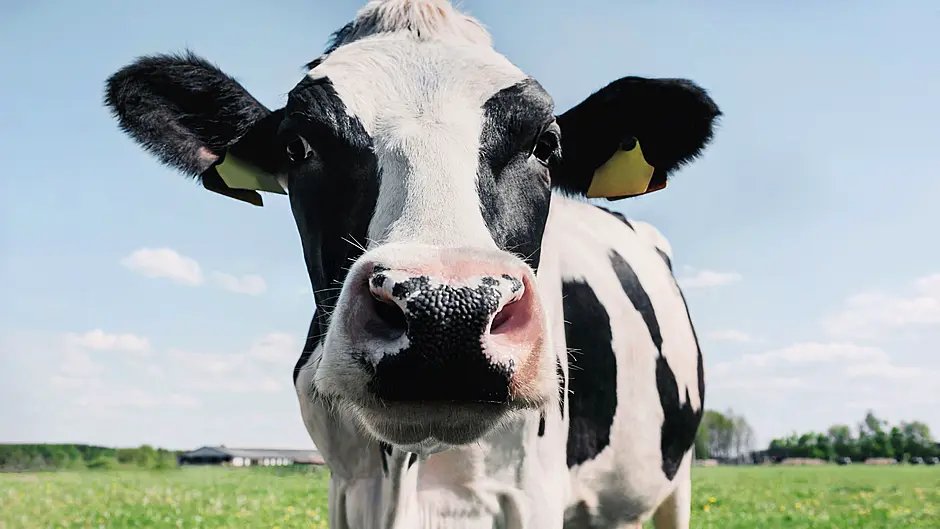LARGE differences have been identified in daily methane emissions between animals fed the same diet, with 11% of these differences being traced to genetic differences.
The finding has been described as a world-first scientific breakthrough that can enable the reduction of methane from the Irish cattle herd through animal genetics.
This will be possible because of the publication of methane evaluations which will enable breeding programmes to reduce daily methane emissions in beef cattle.
The research to underpin this is a result of a €3m project called Greenbreed, funded by the Department of Agriculture, Food and the Marine.
Collaborative research, involving Teagasc, Southeast Technological University, Munster Technological University and ICBF, found the 20% highest emitting animals genetically are expected to emit 30% more methane per day compared to the 20% lowest emitting animals.
The work indicates that breeding programmes to reduce methane emissions will be effective for selecting low-emitting livestock, especially when undertaken in tandem with the national genomic evaluations, such as the age at slaughter evaluations released in 2022.
Co-ordinator of the Greenbreed project, Prof Donagh Berry, said that breeding strategies boast the advantages of being a technology that has already proven to deliver.
‘The benefits will accumulate over time, delivering permanent changes to the entire national herd without additional costs to producers.
‘More importantly, though, the benefits achieved through breeding are complementary and stack on top of advances being achieved through other farming management practices and technologies being investigated,’ Prof Berry said.
Minister McConalogue said it was a ‘game changer’ in the drive to reduce agricultural emissions.
‘Science is the ace up our sleeve in reaching our climate targets and we are being strategic in our approach to backing credible and practical science,’ he said.
‘The implementation of a low methane emitting breeding programme has significant potential to harness the genetic variation for methane emissions that exists within the national herd. This, in turn, will bring about permanent and cumulative reductions in the methane output of future generations of livestock.
‘The results of the research also highlight the potential to breed more environmentally sustainable animals, while at the same time, not having a negative impact on the animal’s performance and profitability.’









